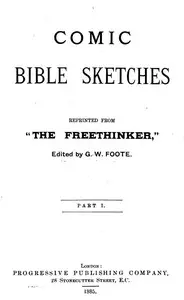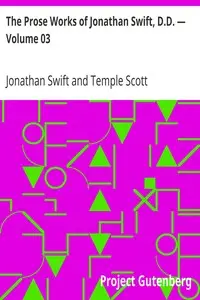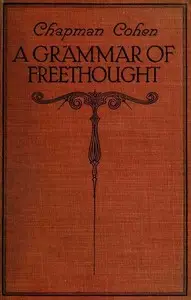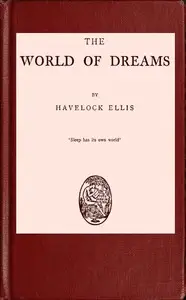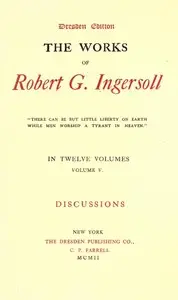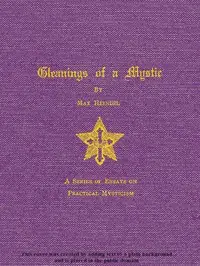"Satires and Profanities" by James Thomson is a compilation of satirical writings that serve as a spirited critique of religion, society, and politics. Championed as an important articulation of freethought in a preface by G.W. Foote, this provocative collection revives Thomson’s articles from secularist publications, addressing timeless and controversial topics with sharp wit and irony. Intended to stir debate, the book sets the stage for incisive essays that unearth complexities and contradictions within religious practices, as exemplified in the promising first essay, "The Devil in the Church of England," with its examination of the Church of England's views on the Devil and eternal punishment. Highlighting the author’s perspective as a freethinker further influenced by his struggles and melancholic disposition, the pieces aim to challenge conventional beliefs and norms, revealing the undercurrents of hypocrisy and absurdity within the prevailing establishment.
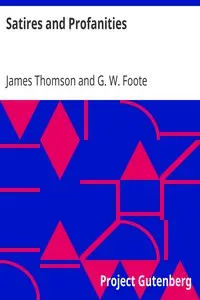
Satires and Profanities
By James Thomson
Dive into a freethinker’s darkly humorous and ironic critique of religion, politics, and society.
Summary
About the AuthorJames Thomson — pen name Bysshe Vanolis — was a Scottish journalist, poet, and translator. He is remembered for The City of Dreadful Night, a poetic allegory of urban suffering and despair. His pen name derives from the names of the poets Shelley and Novalis; both strong influences on him as a writer. Thomson's essays were written mainly for National Reformer, Secular Review, and Cope's Tobacco Plant. His longer poems include "The Doom of a City" (1854) in four parts, "Vane's Story" (1865), and the Orientalist ballad "Weddah and Om-El-Bonain". He admired and translated the works of the Italian poet Giacomo Leopardi and Heinrich Heine. In the title of his biography of Thomson, Bertram Dobell dubbed him "the Laureate of Pessimism".
James Thomson — pen name Bysshe Vanolis — was a Scottish journalist, poet, and translator. He is remembered for The City of Dreadful Night, a poetic allegory of urban suffering and despair. His pen name derives from the names of the poets Shelley and Novalis; both strong influences on him as a writer. Thomson's essays were written mainly for National Reformer, Secular Review, and Cope's Tobacco Plant. His longer poems include "The Doom of a City" (1854) in four parts, "Vane's Story" (1865), and the Orientalist ballad "Weddah and Om-El-Bonain". He admired and translated the works of the Italian poet Giacomo Leopardi and Heinrich Heine. In the title of his biography of Thomson, Bertram Dobell dubbed him "the Laureate of Pessimism".


